They end up as the last cow in the herd, bringing up the rear when you are driving, or better yet following. They will fall back to assist another cow or calf if it is lagging. They are the cows most often found at the nursery site, remaining there while the other mothers graze.
Deterrents and Sargent Cows
by Mark L.Coats
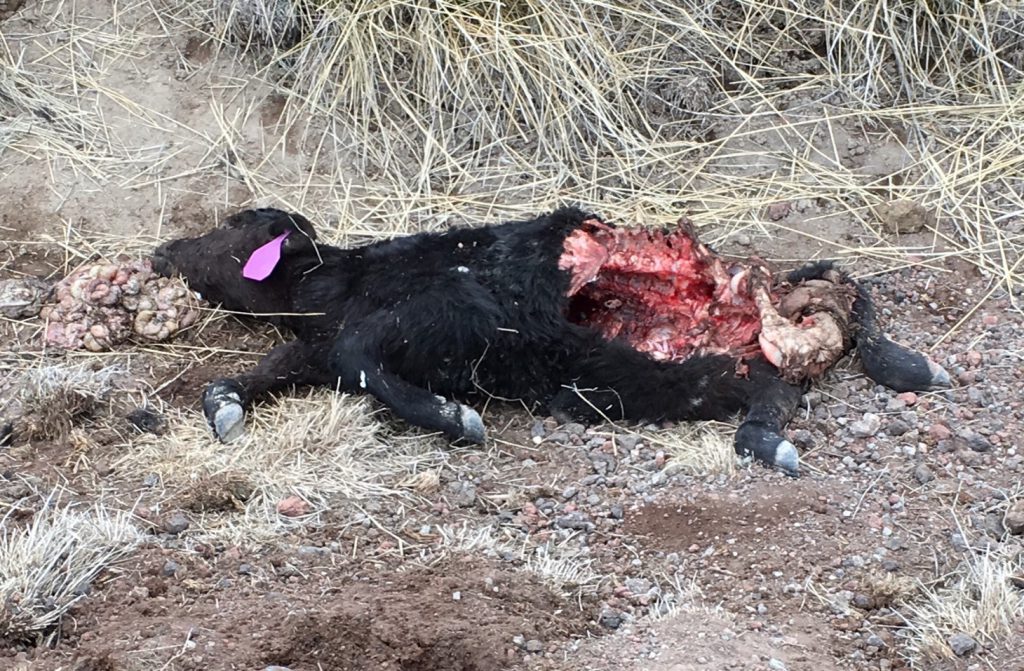
Some unique events happened in conjunction with each other. I am not a big believer in coincidences but the events happened like this.
We are feeding daily as is our neighbor. I had just finished feeding and checking my daily routine when my neighbor called to inform me that they had a cow of mine in their corral. I told them I would be right over. I was a bit confused as during my morning check I saw no calves that were unattended. So I made it to the neighbor’s and was surprised to see a special cow. So I told my neighbor the story behind this dry cow.
This cow was one of the original cows that began my still developing theory of “Sargent cows.” “Sargent cows” are cows that through the predator awareness training seem to establish themselves as lead cows. They don’t quite follow the description of the lead, however. They end up as the last cow in the herd, bringing up the rear when you are driving, or better yet following. They will fall back to assist another cow or calf if it is lagging. They are the cows most often found at the nursery site, remaining there while the other mothers graze. They are often the cows that are in the lead when going to water on the range, and have been captured on the trail cameras doing so. When training predator awareness, they are often the anchor that the grouping unites to. In training, when an individual cow is defying the herd and responding in flight, the “Sargent cow” will often lead the herd towards that individual to assist it in returning to the group and safety.
This cow’s calf was doctored many times, as it was a chronically sick calf. It would perk up for a while and then a new symptom would show up. Each time the cow saw us coming she would meet us and lead us to her calf, where she stood closely and calmly while we caught and doctored her calf. The calf finally died. This cow is always close when tagging or doctoring other calves that are not hers and with the same watchful eye. My wife and I talked about her departure, but her attitude and young age swayed our decision to keep her around.
Well I backed up to the corral which has no wing or alley and easily loaded this cow confirming that we had made the right choice in her sticking around. I headed back the long way to see where she had gotten out at and I found the spot where she had forced her way through the fence. Maybe keeping her wasn’t the right choice, after all. I returned home and left her in our corrals, then I loaded up the fencing materials and headed out to repair the damages. After making the repairs I thought that I should track her earlier departure. She was on a straight line, no wandering or browsing. Then after about a mile I saw the signs of a problem, birds. Discovering a neighbor’s calf that had been run through the fence and killed by a predator. I looked for tracks and any signs, what I found was cow tracks around the dead calf that were deep and encircling the calf as if the cow was attempting to defend the calf. This neighbor’s location is visible to my cattle from my ranch.
As I stated before, I am not a firm believer in coincidences. But I have noticed this behavior of “Sargent cows” since I began working on predator awareness. I wonder how many cows have been culled for being a pain but with added training would have become “Sargent cows” in the herd and an asset at deterring predators.
Deterrents
My neighbor does not apply any scent as a deterrent on his ranch and has lost several calves this year. I try to routinely apply scent as a deterrent on my ranches.
Since I have started working on this project of predator awareness in 2011, I have also integrated scenting as a deterrent. My thoughts are, if I can deter presence, that is the first step, then if I can instill a reaction when predatory pressure is received, then I have made my best efforts against a predators attempts.
What I have found is that the power of scent is much more powerful than I had originally thought. It not only creates the illusion of human presence that deters predators but it also presents a safe zone to other wildlife searching for relief from predatory pressures.
Conclusion
With the proper application of scents you can effectively deter predatory presence. But if done incorrectly it will only embolden the predators. Humans seem to discount the importance of scenting since this sensory awareness is not a humans strength, but for the predators it is their most powerful sensory perception.
In training predator awareness the herd posture and reactions become a powerful deterrent against predators. Through training the herd group, the practice develops individual cows to become key to the defensive posture of the herd.
The two efforts when applied together have been effective in deterring predators. I had routinely lost around four calves per year. Since beginning this project in 2011, I haven’t had a loss to a mammal predator. That is a savings of 32 calves to date, not including the larger ranches that I have also assisted.
Seem videos and additional instructional materials by Mark Coats at
www.rancherpredatorawareness.com
Free Range Report
Thank you for reading our latest report, but before you go…
Our loyalty is to the truth and to YOU, our readers!
We respect your reading experience, and have refrained from putting up a paywall and obnoxious advertisements, which means that we get by on small donations from people like you. We’re not asking for much, but any amount that you can give goes a long way to securing a better future for the people who make America great.
[paypal_donation_button]
For as little as $1 you can support Free Range Report, and it takes only a moment.
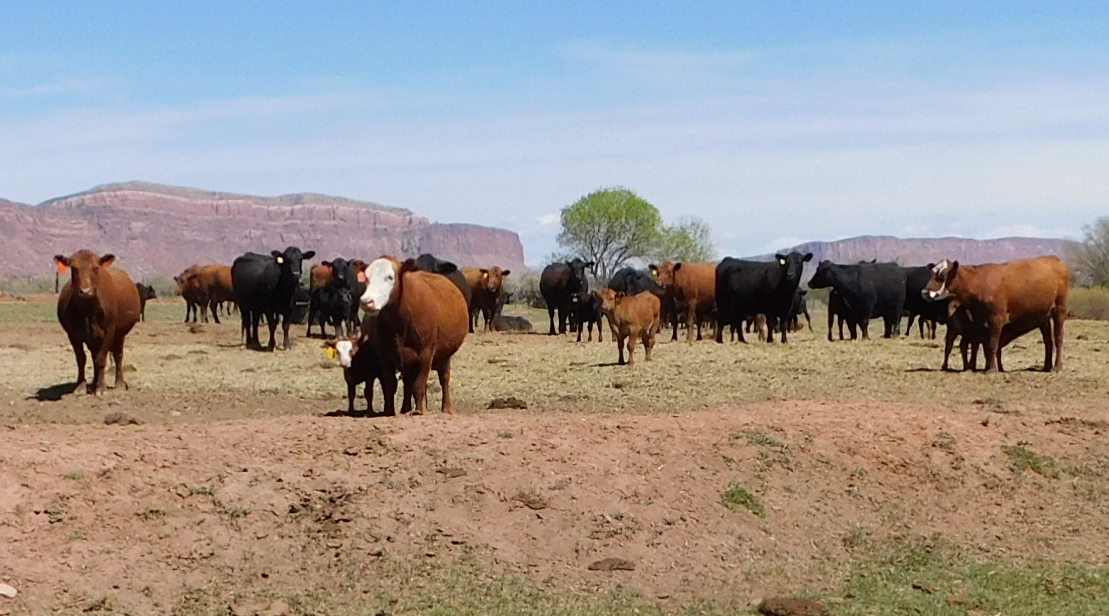
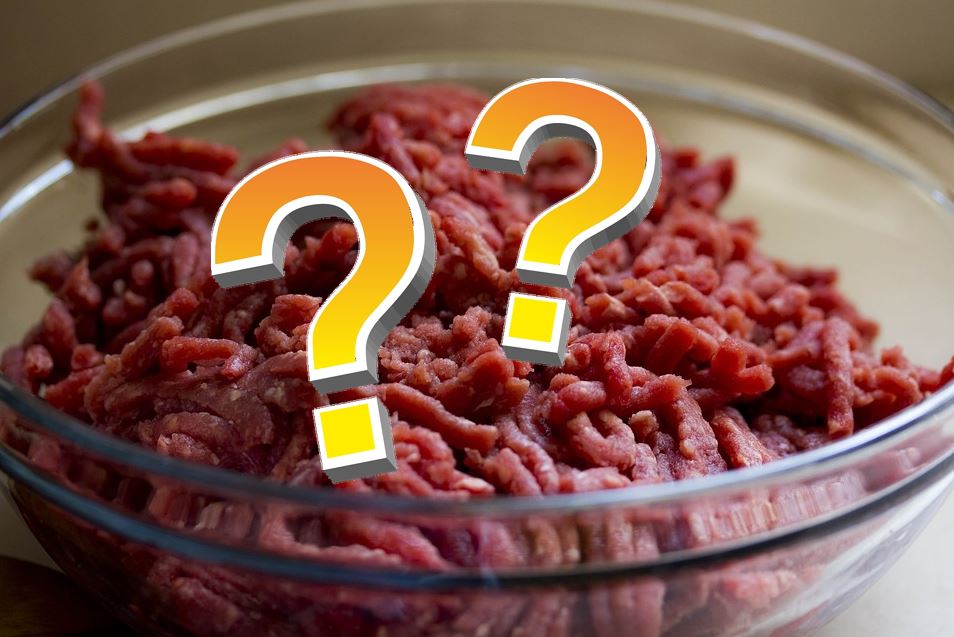
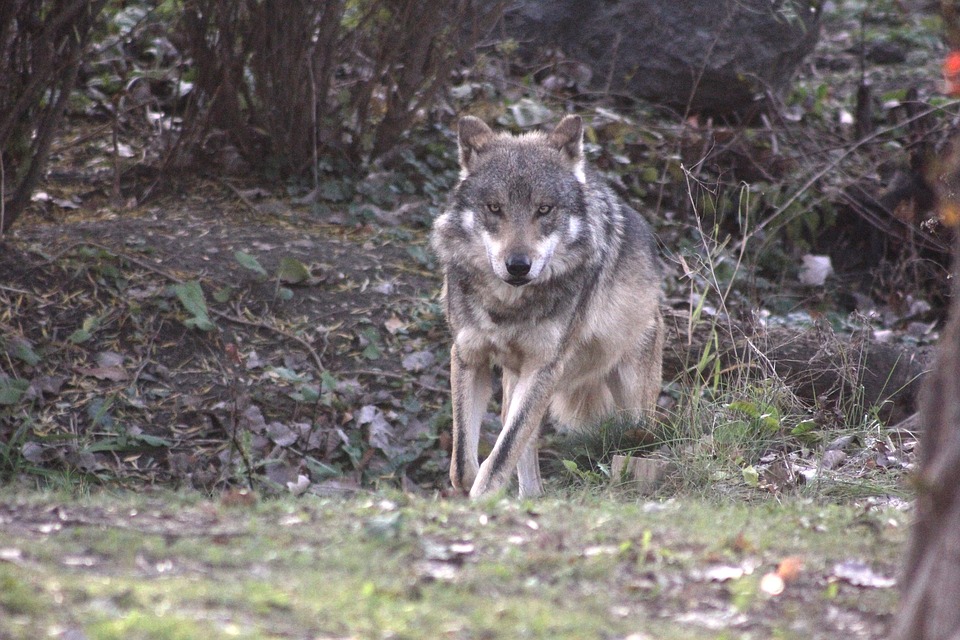
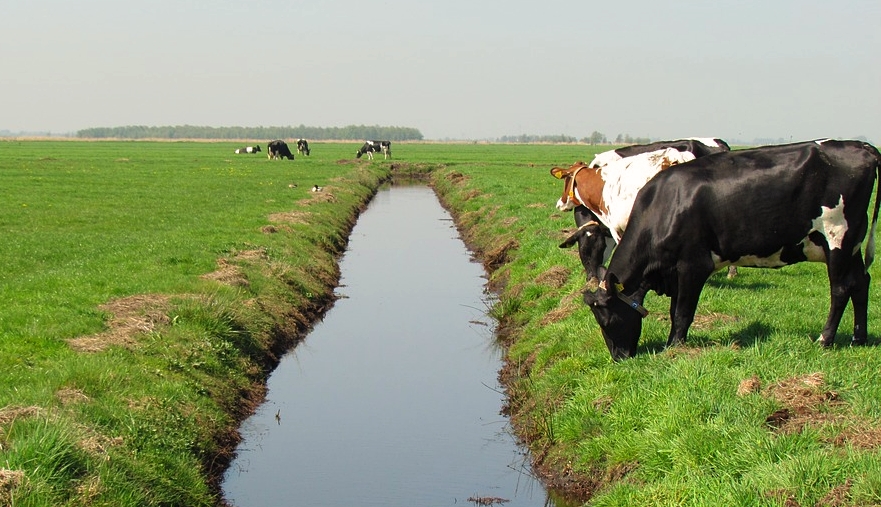
“Sergeant Cows?”